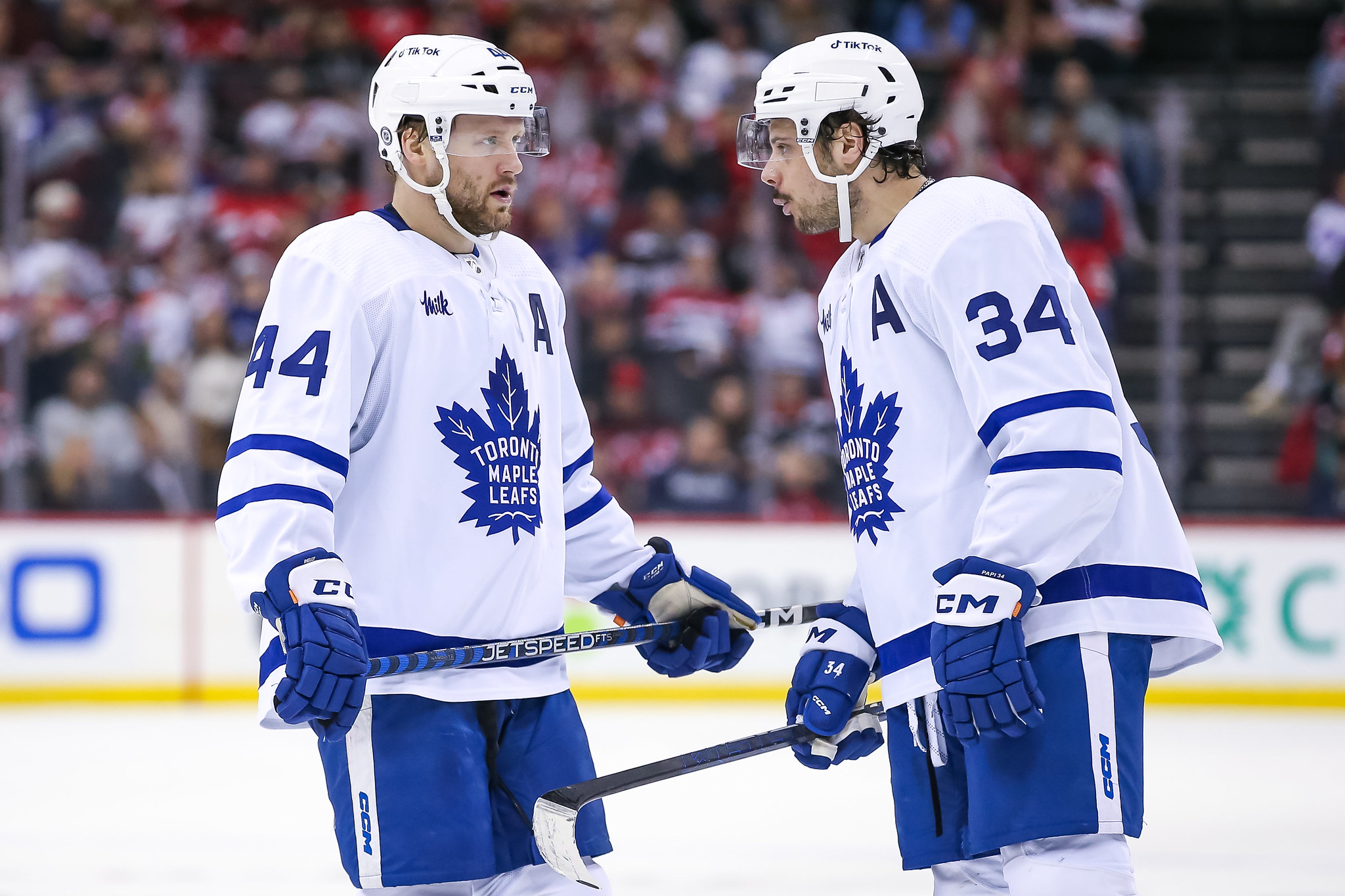In the realm of professional sports, change is often seen as a catalyst for improvement. However, new Toronto Maple Leafs General Manager Brad Treliving seems ready to challenge this notion. Based on the early comments he’s made since being introduced as the man running the show in Toronto, it appears his strategic approach will center around a few key factors, one of which might not be introducing major change.
In the 24 hours since accepting the role of GM, Treliving has made multiple appearances on mainstream media outlets, in many cases specifically talking about his immediate plans for the team. He’s emphasized the evaluation of team depth, the importance of toughness, and effective contract negotiations to shape the organization’s future. As he assumes his new role, Maple Leafs’ fans eagerly anticipate the direction he will take the team.
Evaluating Maple Leafs’ Depth for Strategic Improvements
During an interview with Justin Bourne and Nick Kypreos, Treliving noted that it will be important to properly assess the team’s depth and see what their ability is to adapt to different styles of play. Hinting that it might be easier to make adjustments among the players already there, he suggested change for the sake of change is not the goal. Instead, strategic improvements are sought while supporting existing top talent.

Fostering consistency, dedication, and a no-let-offs mentality among current players is crucial. He talked with the hosts of OverDrive on TSN and said he actually felt the team played better in the series they lost against the Tampa Bay Lightning in 2021-22 than the series they won in 2022-23. That has a bit to do with bounces, but it also tells him that this roster has the capability of playing a different style on any given night. He noted this is a team that is constantly knocking at the door. Changing everything doesn’t seem to make sense.
Emphasizing Team Toughness and Resilience
Treliving recognized the diverse demands of playoff games and stressed the need for the Flames to take the initiative in physical challenges when he was their manager. It sounds like he might want to bring the same approach to Toronto, where he suggests the team needs to find ways to shift their style of play depending on the conditions.
Related: Maple Leafs Will Miss Jason Spezza’s Loyalty
He noted that merely responding to physicality is not enough; the team must be proactive in initiating the physical aspect of the game. One of the keys, he suggested, was being strong in front of both nets and his belief is that success there is essential to excel in the ever-evolving nature of the sport. Expect him to look for those kinds of players if he doesn’t believe he has them on his roster today.
Open Communication and Coaching Considerations
One of the big questions, as he takes over the team, is what will happen with the “core four”. Not ready to say he’s keeping the players or is open to moving them, he talked about how much he likes having elite-level skill and that you don’t just give it away to be different. Treliving prioritizes open communication and plans to have a face-to-face conversation with star player Auston Matthews.
His intention seems to be to build strong relationships and understand players’ needs and desires. He talked about not managing from a box, but getting down where the players are and managing from that level. That will include fostering a strong relationship with head coach Sheldon Keefe in the early going and then tackling what his future might look like. This is not to say Dubas wasn’t in the trenches, but it sounds like Treliving plans to be.
While he expresses admiration for current coach Keefe, managing the final year of his contract poses challenges, requiring careful navigation in a Canadian market.
Navigating Contract Negotiations for the Key Stars
Finally, contract negotiations will play a pivotal role in shaping the future of the Maple Leafs’ core. Elliotte Friedman noted in his 32 Thoughts column on Friday:
As I’ve said many times, I believe Matthews will extend, but not at maximum term (could be anywhere from three to six years, I’d guess). Treliving’s true challenge is trying to get it done before July 1, when his no-trade clause kicks in. It’s going to be a big number, likely the highest AAV in the NHL. So, the question then becomes: what does that mean for Mitch Marner and William Nylander? I think that’s the real question.
As pointed out, Matthews isn’t the only player Treliving needs to worry about, and balancing existing talent, potential extensions, and strategic improvements will be Treliving’s challenge as he shapes the team’s future direction. His plan is to start looking at those contracts immediately.
As Treliving takes on his new role as General Manager of the Maple Leafs, his strategic vision will quickly come into focus. The fact is, he doesn’t have time to waste, and knowing that, what he does right away will shape the team’s direction not only for the upcoming season but for the years to come.
